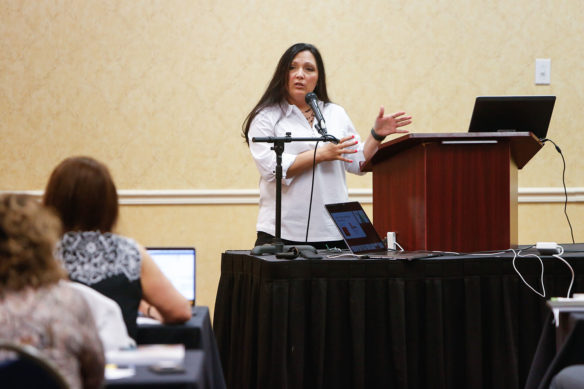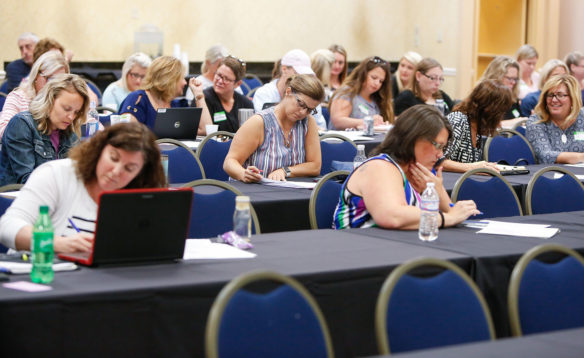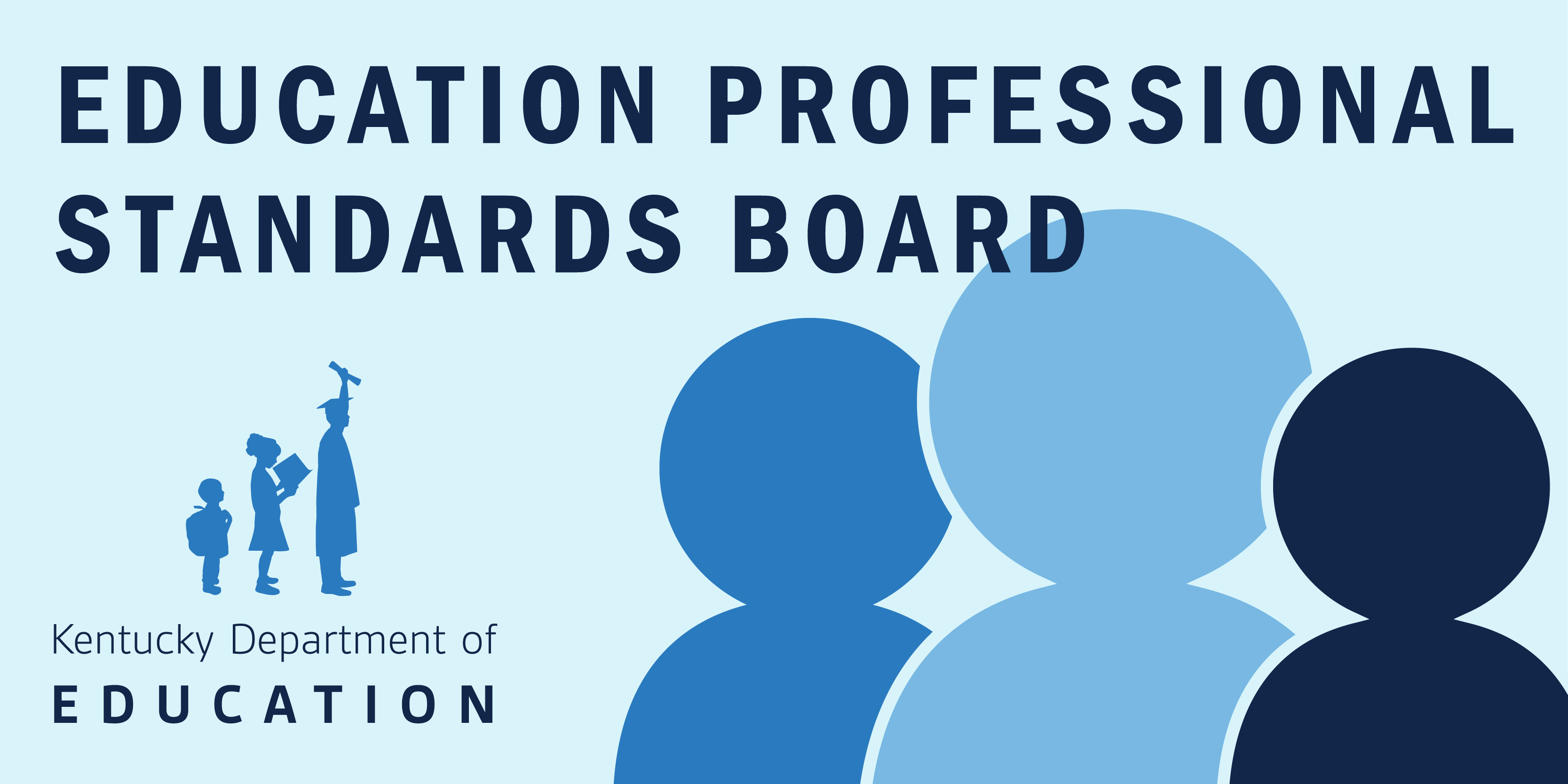
Gretta Hylton, associate commissioner in the Kentucky Department of Education’s Office of Special Education and Early Learning, speaks at a summit at which educators heard about ways to implement positive discipline strategies for students with disabilities.
Photo by Mike Marsee, June 27, 2019
- KDE is using funds from the State Personnel Development Grant to help schools and districts implement positive discipline strategies before problems arise.
- Resources presented to attendees at the summit will be made available to those who could not attend, and other summits likely will be scheduled in the future.
By Mike Marsee
mike.marsee@education.ky.gov
The Kentucky Department of Education’s newest office is taking a proactive approach to improving school climate and culture for students with disabilities.
The Office of Special Education and Early Learning (OSEE), which was formed last fall as part of a reorganization of the Kentucky Department of Education (KDE), chose to focus its first summit on helping school- and district-level educators implement positive discipline strategies before problems arise. National and local experts addressed a group of about 125 educators at the summit held on June 27 in Lexington.
KDE is using funds from the State Personnel Development Grant (SPDG), a five-year, competitive grant from the U.S. Department of Education, to provide support for schools and districts in a proactive manner before they begin to struggle and require assistance.
One of the goals of the SPDG is to improve the capacity of teachers and administrators to implement positive discipline strategies and impact student achievement. The KDE and its partners are using the grant to focus on improving positive outcomes for students, particularly those with disabilities.
“The idea is to be able to provide support, tools and resources to local districts so they can begin to implement positive, proactive discipline strategies in the classroom,” said Gretta Hylton, associate commissioner in the Office of Special Education and Early Learning. .
KDE’s partners in the SPDG include the University of Kentucky Human Development Institute (HDI) and the University of Louisville Center for Instructional and Behavioral Research in Schools (CIBRS).
“We’re making districts aware of what the SPDG is and what it does. Now that we have this capacity, we’re able to implement it at a larger scale,” said HDI’s Mike Abell, who serves as co-manager of the Kentucky SPDG.

About 125 educators attended the summit, which was supported by the Kentucky State Personnel Development Grant. The grant’s goals include better preparing all students with disabilities to reach proficiency and graduate from high school.
Photo by Mike Marsee, June 27, 2019
Hylton said common themes concerning students with disabilities emerged during district consolidated monitoring required under the federal Individuals with Disabilities Education Act, as well as a review of special education discipline data. Hylton said the summit was a response to those themes.
“What we’re noticing is that districts are really struggling with the unique needs that students have today,” she said. “This summit is really geared toward those common themes. Developing and supporting a Tier I positive behavior support system across the state is what we want to provide to all districts.”
She said all of the resources presented to attendees at the summit will be made available to those who could not attend, and other summits will likely be scheduled in the future.
“If districts want to just have a conversation or would like a team from our office to come talk to them, we’d be more than happy to do that,” Hylton said. “We have these resources that we want to share, and we want to equip districts with the tools that they need to improve discipline practices and improve culture and climate.
“We know that if we’re able to improve culture and climate, then we can improve academic and behavioral outcomes for students.”
If you have questions or would like more information about ways the SPDG can assist your district, contact the OSEEL office.
Resources shared at the Summit can be viewed online.



Leave A Comment